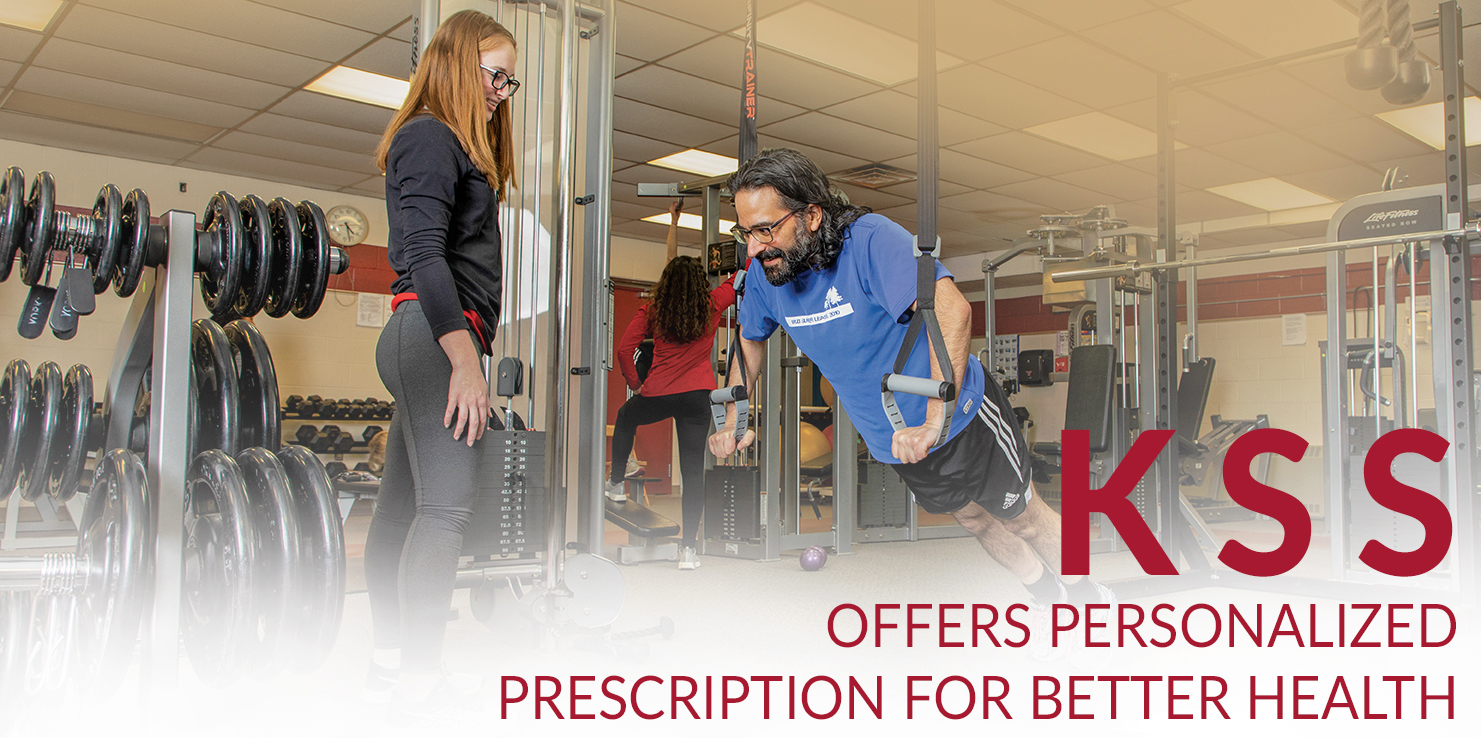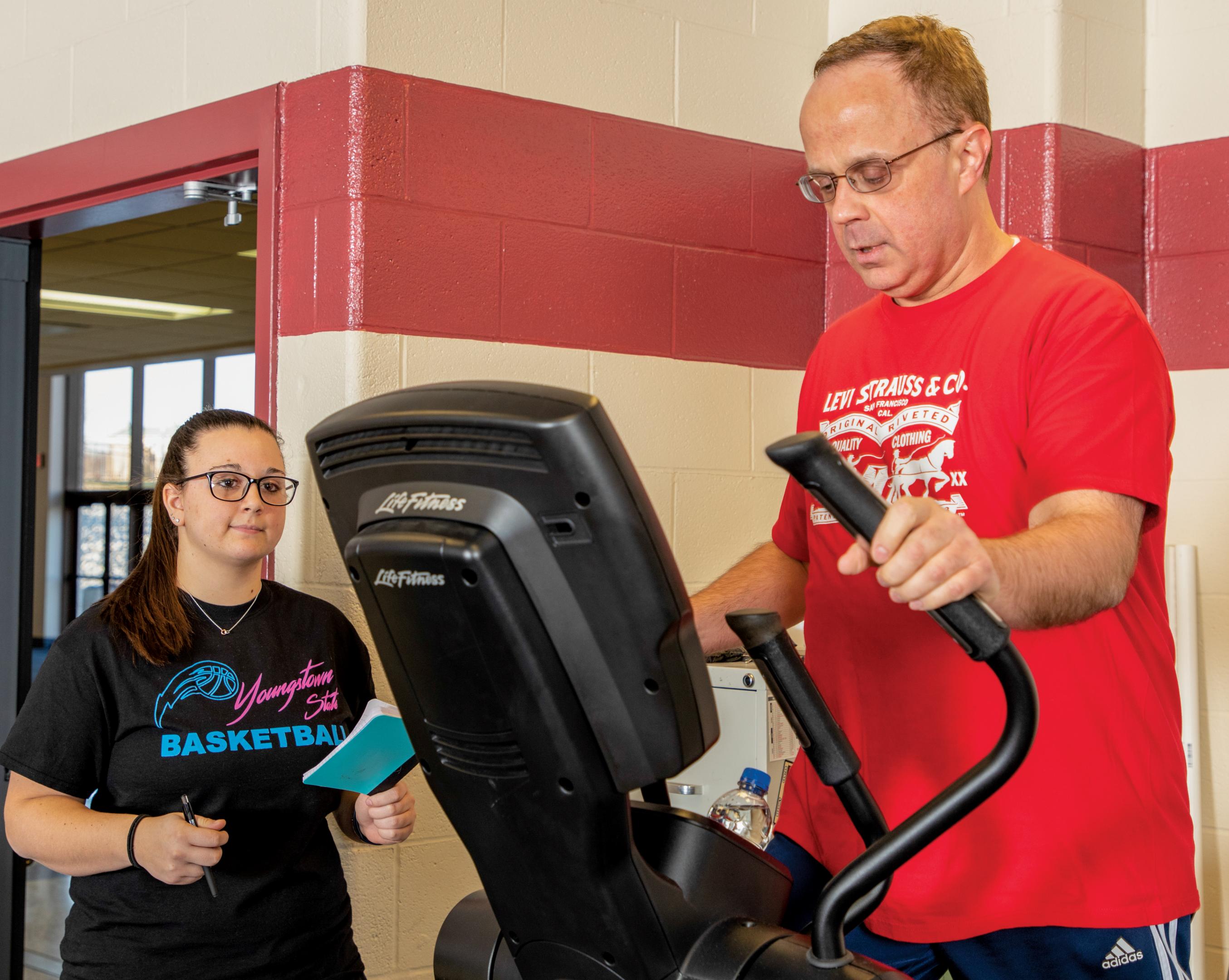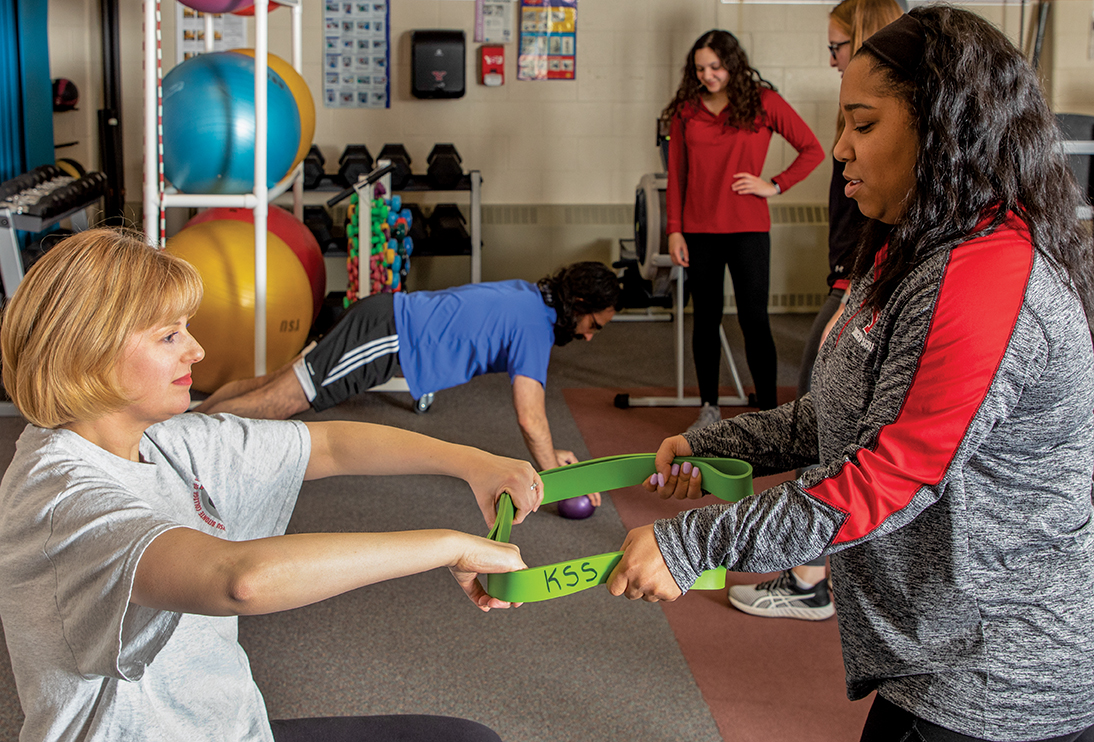

Steve Katros was over-weight, over-stressed and over-eating, so he turned to students in YSU’s Kinesiology and Sport Science (KSS) program for help.
Three semesters later, Katros, administrative assistant in the YSU Bitonte College of Health and Human Services, has lost 40 pounds, decreased his blood pressure and doesn’t binge eat anymore.
“My health and lifestyle have been affected in ways I didn’t even know were possible,” he said. “I have more energy, I’m less fatigued, and my stress levels have decreased significantly.”
Katros is one of 23 YSU faculty and staff members serving as clients for students enrolled in the KSS Exercise Testing and Prescription III course, allowing students studying to become exercise physiologists to practice and apply skills in a real-life clinical environment.
“We look at the clients from the inside out,” said Sara Michaliszyn, associate professor and chair of KSS. “Our students, unlike non-degreed personal trainers, are trained in understanding the acute and chronic physiological response to exercise, diverse medical conditions and many different ways to conduct exercise tests and prescribe exercise for a wide variety of populations, including those with chronic disease. You can’t change physiology unless you understand physiology.”

Jasmine Warren, Exercise Science major said, “To have this hands-on experience as an undergrad student means so much to me. I’ve always been one to learn hands-on, so being able to perform a health fitness assessment and interact with different clients is like a dream come true.”
Students also take a health history and use all of the data collected to assess their client’s current health and any special considerations. They use that information to develop an individualized 12-week program.
“During our coursework, for the most part, we are only dealing with very healthy and active college students,” said Exercise Science major Hunter Urmson. “Being able to work with someone who may not enjoy working out or who is struggling with some type of physical disability is a great way to help challenge us and help us to think outside the box a little bit more.”
Students spend one to three days a week with their clients, depending on the client’s schedule, and repeat the health fitness assessment at the end of the program. Students and clients evaluate the effectiveness of the plan, and students have the opportunity to discuss what could have been done differently.
“Sara Michaliszyn and these students deserve the credit,” said Katros. “Going through this program has been nothing but a confidence booster for me both personally and professionally. I strongly encourage and recommend this program to anyone who wants to improve their health both mentally and physically.”
